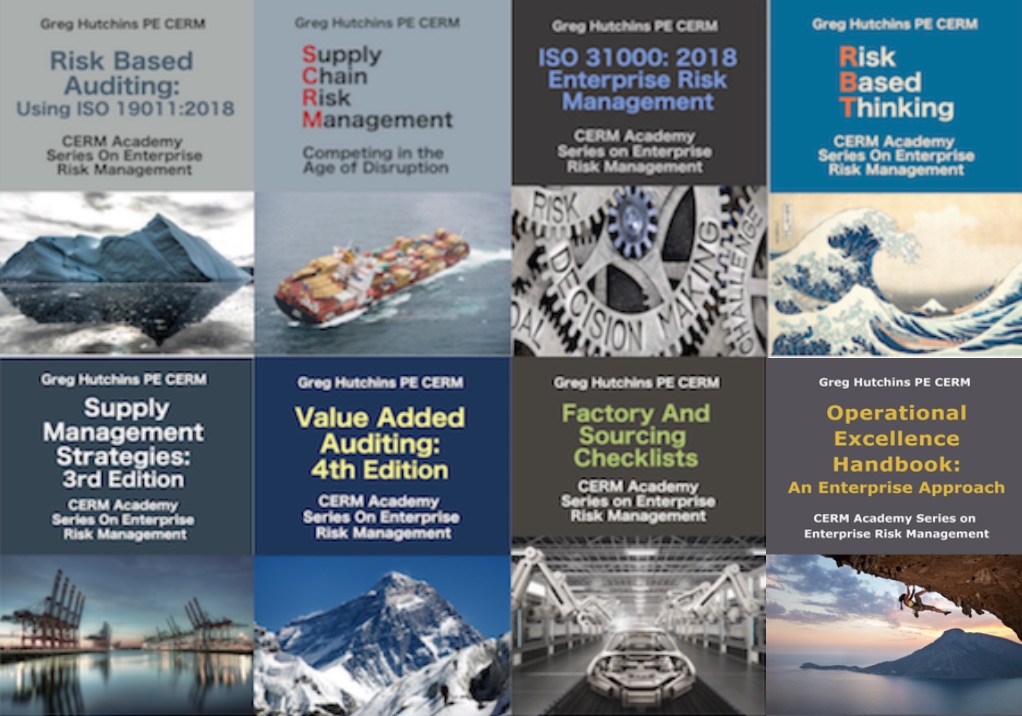 From working as an expert witness in a number of lawsuits where large software projects were cancelled or did not operate correctly when deployed, four major problems occur repeatedly: 1) Accurate estimates are not produced or are overruled; 2) Requirements changes are not handled effectively; 3) Quality control is deficient; 4) Progress tracking fails to alert higher management to the seriousness of the issues. There are often other problems as well, but these four always occur in breach of contract litigation. Continue reading
From working as an expert witness in a number of lawsuits where large software projects were cancelled or did not operate correctly when deployed, four major problems occur repeatedly: 1) Accurate estimates are not produced or are overruled; 2) Requirements changes are not handled effectively; 3) Quality control is deficient; 4) Progress tracking fails to alert higher management to the seriousness of the issues. There are often other problems as well, but these four always occur in breach of contract litigation. Continue reading
Monthly Archives: March 2013
#10 – DON’T LOSE THEM – WHY RETENTION IS IMPORTANT? – ELIZABETH LIONS
 What goes down must come back up and employers may not be ready for the next shift in the market:
What goes down must come back up and employers may not be ready for the next shift in the market:
Your top performers may be leaving.
Americans are cranky, disengaged, and looking for something better. Suffering from overwork and being witness to those who had to clean out their office cubes; these employees are the survivors of recession. Clearly the data points to the summer of discontentment in the office.
THE NUMBERS?
In January of 2012, Career Builder surveyed 3,900 leaders across the country. 32% of employers reported top performers left their organization and 39% are concerned they’ll lose top employees in 2013. On the flip side, Career Builder surveyed employees and found while most workers (66%) say they are generally satisfied with their job, 25% say they will change jobs in 2013 or 2014. Clearly they are fishing!
#10 – DO YOU VUCA? – GREG HUTCHINS
 THE CHALLENGE
THE CHALLENGE
We recently presented the above topic to a talk over the Christmas holidays. Attendance was good. However, the tension was palpable. You could cut the air with a knife. There was that much interest and personal angst surrounding the topic
Why? So, let’s first define VUCA and discuss why it’s the most important question in your work, career, job, and even your life.
WHAT IS VUCA?
VUCA is an acronym for ‘volatility, uncertainty, complexity, and ambiguity.’ Surely, VUCA is now THE sign of our times. It’s all about change. Economic change. Organizational change. Work change. Career change. And, life change. There’s no escaping it and its personal impacts.
VUCA is based on the following logic:
- Volatility is the accelerating rate of change around competition, business, employment, career, and job challenges.
- Uncertainty may be our biggest challenge and is our inability to cope with volatility. Things are changing so fast and in so many unexpected ways that it’s overwhelming our ability to cope and to understand what’s going on.
- Complexity entails all the issues and the chaos that surrounds us, that lead to confusion in making smart decisions in what we call the ‘fog of reality’ and the ‘fog of business.’
- Ambiguity is our difficulty and inability to solve complex problems and make clear decisions because of the ‘fog of reality.’ There doesn’t seem to be a linear cause-and-effect relationship between problems and solutions. This can result in misreads, poor decisions, or more often to no decisions.
WHERE DID VUCA COME FROM?
The US Army got it right sooner than the rest of us. It developed the concept early on to deal with the ‘fog of war.’ The US Army (as well as most of the services) was designed and deployed to fight large static wars across national borders. Think of the first Iraq war. Then, the September 11 attack and the ensuing insurgency in Iraq and Afghanistan created a new threat scenario – asymmetric warfare.
Since many organizations compete in a global economy, they see business through the ‘fog of business.’ Harvard Business Review described it aptly
“Military leaders need new tools and techniques to face a fast-changing and unpredictable type of enemy—so the armed services train their officers in ways that build a culture of readiness and commitment. Business leaders need just such a culture to survive and succeed, given that they, too, face unprecedented uncertainty—and new types of competitors.”[i]
VUCA IS ALTERING PROFESSIONS
Let’s look at only one profession: quality. As we all know, the quality profession is globalizing and maturing. Let’s look at a few recent developments in the quality profession:
- Malcolm Baldrige National Quality Award (MBNQA) is now Baldrige Performance Excellence Program. On top of this, future funding of the Baldrige seems to be in question.
- Global ISO registrars are rebranding to risk shops, such as DNV (Det Norske Veritas), BSI (British Standards Institution), Lloyd’s, etc.
- Quality assurance is maturing to business assurance in the business sector or mission assurance in the public sector.
- New families of ISO standards being developed that are risk based, such as ISO 28k, ISO 27K, and ISO 22k families of standards.
As the above data points indicate, critical VUCA questions emerge in ALL professions. Let’s look at a few critical questions:
- What VUCA factors are impacting your profession?
- Where is your going?
- How will your employer or organization adapt to VUCA?
- What knowledge, skills and abilities are needed over the next several years for your to succeed and prosper?
- How will you obtain the requisite knowledge, skills, and abilities to succeed and prosper?
All good questions. As you can see there is a common thread – risk management – which we’ll explore as a possible VUCA response. Let’s look at a few recent surveys that may shine a light on our future.
TODAY’S MOST CRITICAL QUESTION?
As the economy slogs on, we think we’re going to see more folks having to address the most critical question of our time:
“How are you responding to VUCA?”
First, VUCA is very personal. Everyone in the presentation had a personal VUCA story to share. Jobs lost. Income changes. Work/job rule changes. The common denominator was uncertainty mixed with fear.
Another observation: People at our talk were reacting instead of responding to VUCA. This is a critical distinction. The dictionary defines ‘react’ as: “to act in opposition,” “to go back to a former condition,” or “to be affected by some influence, event …”[ii] VUCA tends to promote similar reactions. Denial of the changes around us. Opposition to the changes and a desire to go back to the way things were. These are all natural human reactions.
So, what does responding to VUCA mean? The dictionary defines ‘respond’ as: “to react positively or favorably.” Responding to VUCA implies that a person or organization understands the VUCA context and plans and develops an appropriate response based on the current challenges. Or another way to look at it implies reacting is kneejerk, while responding is a thoughtful and even positive act. Obviously, the latter is the logical, measured, and preferred response to addressing VUCA.
Responding and reframing VUCA can lead to the following:
- Volatility yields to Vision: Vision implies there is a clear understanding of the desired future state.
- Uncertainty yields to Understanding: Understanding is the critical acceptance of the short and long term factors that can affect one’s career, work, and personal life.
- Complexity yields to Clarity: Clarity is the basis for understanding how to deliver personal value through staying flexible, keeping current with technology, learning new value adding skills, being able to innovate, and being able to deliver increasing value.
- Ambiguity yields to Agility: Agility is the ability to be nimble by responding to new situations with new ideas, new approaches, and new skills.
[i] Harvard Business Review, ‘Four Lessons in Adaptive Leadership,’ November, 2011.
[ii] Web, http://www.merriam-webster.com/dictionary.
Bio:
Greg Hutchins PE and CERM (503.233.101 & GregH@QualityPlusEngineering.com) is the founder of:
CERMAcademy.com
800Compete.com
QualityPlusEngineering.com
WorkingIt.com
He is the evangelist behind Future of Quality: Risk®. He is currently working on the Future of Work and machine learning projects.
He is a frequent speaker and expert on Supply Chain Risk Management and cyber security. His current books available on all platform are shown below:
#10 – FIRST ARTICLE INSPECTION FOR BOEING 787 – BILL WALKER
It appears that the FAA is going to require that 787 First Articles be accomplished again. My article will help improve this reporting if necessary.
Our customers are requiring more First Articles and even sooner than required in the AS 9102A Standard. Standard requires every two years if two years has elapsed since the last manufacture of the product. But there are some OEM’s (Original Equipment Manufactures) that have reduced the two years to one year. So be careful and be sure that you have read the customers contract, ALL Quality Requirements, sometimes called QNotes and FULLY UNDERSTAND all the contract requirements before you sign and fully commit your organization. Continue reading

